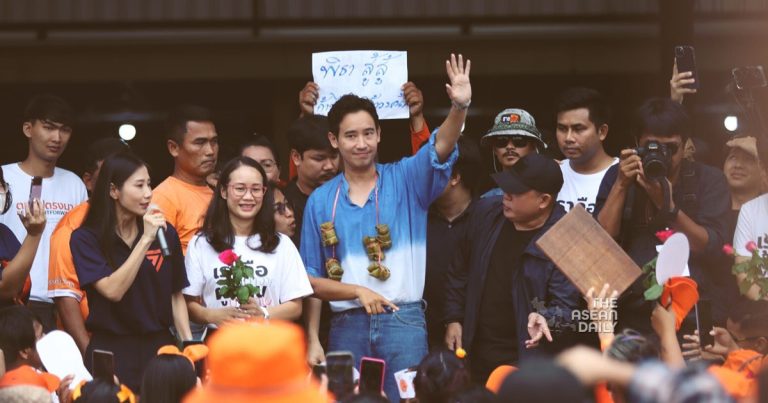2-8-2023 (BANGKOK) A senior figure from the Pheu Thai party expressed concern on Tuesday regarding the Constitutional Court’s potential acceptance for deliberation of a petition concerning the rejected renomination of Move Forward Party (MFP) leader, Pita Limjaroenrat.
Scheduled for Thursday, the court’s hearing will assess the Ombudsman’s petition and consider ordering parliament to postpone the prime ministerial vote. Legal experts indicate that the court may either reject the petition outright, accept it for consideration, or accept it while suspending parliament’s prime ministerial selection process until a ruling is made.
Sutin Klungsang, a list-MP from Pheu Thai, emphasized that the court’s decision will determine whether the joint sitting of parliament on Friday, for the prime ministerial selection, will proceed and if Pheu Thai can present its own candidate, Srettha Thavisin.
The Pheu Thai party is leading efforts to form a coalition and intends to nominate Srettha Thavisin as the prime minister. However, Mr. Sutin asserted that if the court allows Mr. Pita’s renomination, the eight potential coalition partners will have to hold discussions and decide on their next course of action.
Addressing the issue, Thanakrit Vorathanatchakul, a prosecutor from the Office of the Attorney-General (OAG), clarified that the focus is on determining whether the rejected renomination of Mr. Pita violates the constitutional rights of those seeking a judicial review. The complainants objecting to parliament’s rejection see it as a violation of their rights.
However, it is worth noting that while Mr. Pita is the individual whose rights are deemed affected, he is not one of the petitioners. Thus, if the court does not agree with this stance, it may reject the petition. If that occurs, the request for postponing the prime ministerial vote will automatically be dropped.
To illustrate the situation, Mr. Thanakrit cited a past case involving a petition related to a charter amendment concerning the two-ballot system that had been passed by parliament. New Palang Dharma Party leader, Ravee Maschamadol, disagreed with the change and sought a judicial review, claiming it violated his rights as an MP. However, the court dismissed the petition, ruling that the change involved legislative work in accordance with the charter, and thus, Dr. Ravee’s constitutional rights were not violated.




